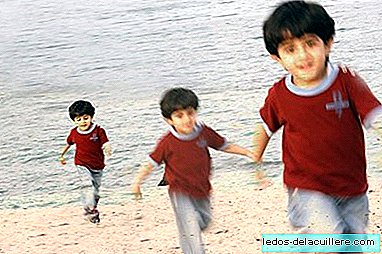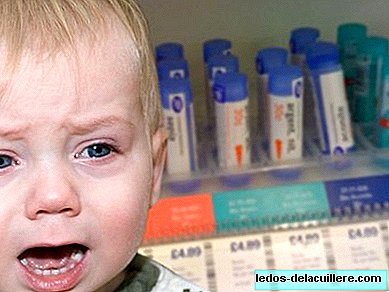
When the little ones enter school, the difference between those born in December and those born in January, who will go to the same class, is very large. That is why there are those who propose that in Infant Education the classes are structured in two blocks, between children born in the first half of the year and those born from July.
This is quite complicated in a context in which Education has fewer and fewer resources (and classrooms are increasingly filled with fewer teachers), but of course the idea is aimed at children receiving personalized and appropriate attention to your needs.
And it is that 12 months make a huge difference during the first years of life, although this gap is balanced when children approach 11 or 12 years. But the immaturity of a child with another disorder should not be confused: it seems that false diagnoses of hyperactivity are occurring especially with the smallest of the class.
We can affirm that the Attention Deficit Hyperactivity Disorder (ADHD) is overdiagnosed, that many children end up with this diagnosis (and not to say at the "colloquial" level), but in reality they suffer from other behaviors, processes or disorders.
A study in Canada considers that often the immaturity of the smallest of the class is mistaken for hyperactivity, although in reality symptoms such as impulsivity, lack of concentration, difficulties to be still, impatience, disorganization in the study ... are a consequence of the age of the children and not of a disorder.
The research has been conducted by experts from the Canadian University of British Columbia and published in the "Canadian Medical Association Journal". They used a sample of almost one million children aged six to 12 to see how it affects the issue. Their conclusions are an important call of attention to parents, teachers and specialists.
Between 1997 and 2008, children born in December were 39% more likely to be diagnosed with ADHD than their January partners. An overdiagnosis that resulted in 48% more drug use to treat this hyperactivity.
Regarding this last data, the researchers point out that there is a danger of be unnecessarily medicating these children, along with the risk of 'labeling' a child, treating him differently than his peers and altering his perception of himself.
The truth is that these data are from Canada, and experts point out that in other countries such as Spain there is no such overdiagnosis of ADHD (because here it is diagnosed less and better, not only with questionnaires ...), but surely there are cases of it kind.
To escape these misdiagnoses, they advise, among other things, to observe the child in other contexts than the school, in which his immaturity with respect to other children may be more evident. An adequate diagnosis is key to treating the behavior problems of these children and avoiding, among other things, school failure and sequelae in adulthood.
And, although serious cases of ADHD are easily diagnosed, those that are not as pronounced (which are the majority) are not so simple.
In this case the role of teachers is essential, because they are the first to suspect that something is wrong, so they should also have training in these issues, just as if parents suspect the existence of ADHD consult a specialist.
But, if a child is restless in class, does not attend, is confused, has problems of concentration and behavior ... we must ask if it is too small for what is being done in class Y devote special attention before diagnosing hyperactivity.












